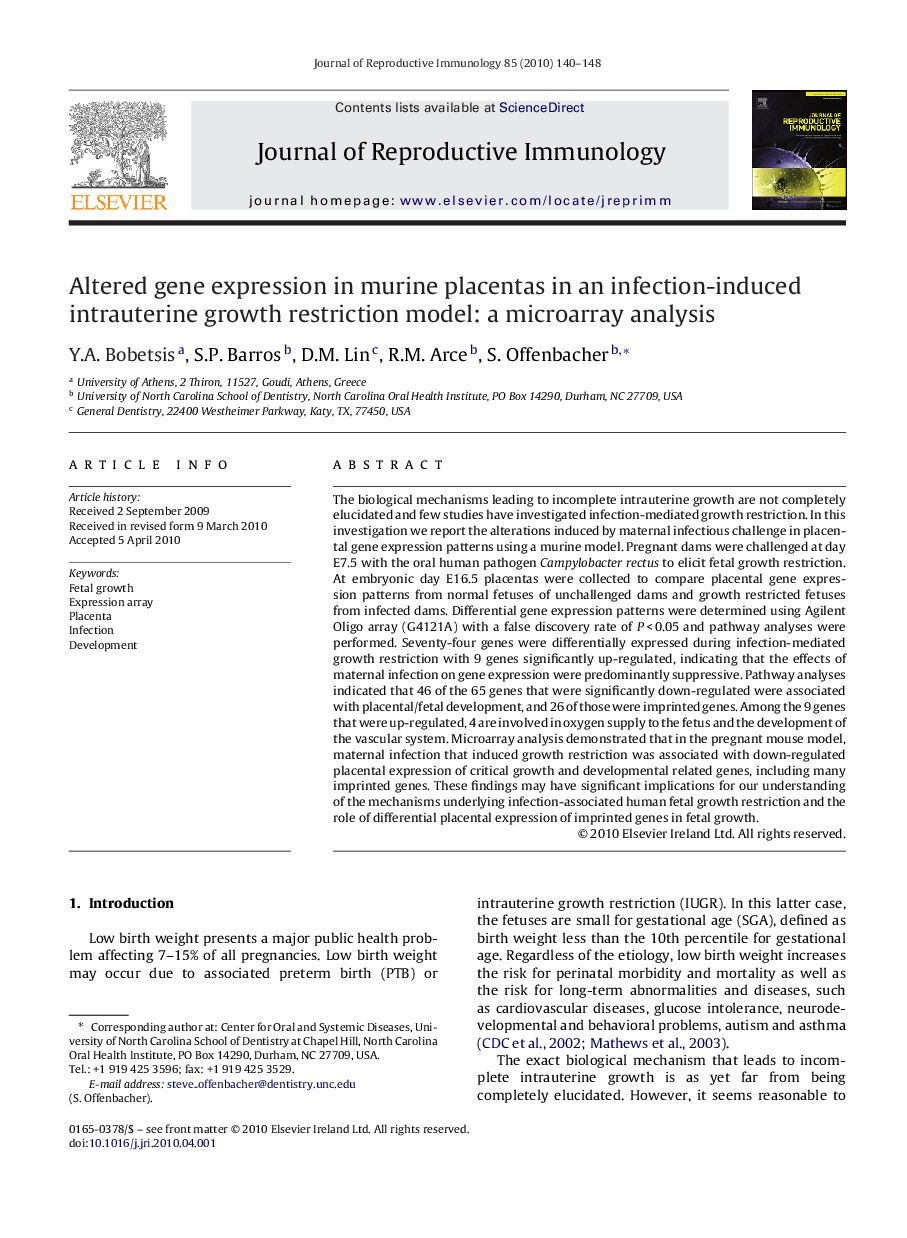| Article ID | Journal | Published Year | Pages | File Type |
|---|---|---|---|---|
| 3964671 | Journal of Reproductive Immunology | 2010 | 9 Pages |
The biological mechanisms leading to incomplete intrauterine growth are not completely elucidated and few studies have investigated infection-mediated growth restriction. In this investigation we report the alterations induced by maternal infectious challenge in placental gene expression patterns using a murine model. Pregnant dams were challenged at day E7.5 with the oral human pathogen Campylobacter rectus to elicit fetal growth restriction. At embryonic day E16.5 placentas were collected to compare placental gene expression patterns from normal fetuses of unchallenged dams and growth restricted fetuses from infected dams. Differential gene expression patterns were determined using Agilent Oligo array (G4121A) with a false discovery rate of P < 0.05 and pathway analyses were performed. Seventy-four genes were differentially expressed during infection-mediated growth restriction with 9 genes significantly up-regulated, indicating that the effects of maternal infection on gene expression were predominantly suppressive. Pathway analyses indicated that 46 of the 65 genes that were significantly down-regulated were associated with placental/fetal development, and 26 of those were imprinted genes. Among the 9 genes that were up-regulated, 4 are involved in oxygen supply to the fetus and the development of the vascular system. Microarray analysis demonstrated that in the pregnant mouse model, maternal infection that induced growth restriction was associated with down-regulated placental expression of critical growth and developmental related genes, including many imprinted genes. These findings may have significant implications for our understanding of the mechanisms underlying infection-associated human fetal growth restriction and the role of differential placental expression of imprinted genes in fetal growth.
